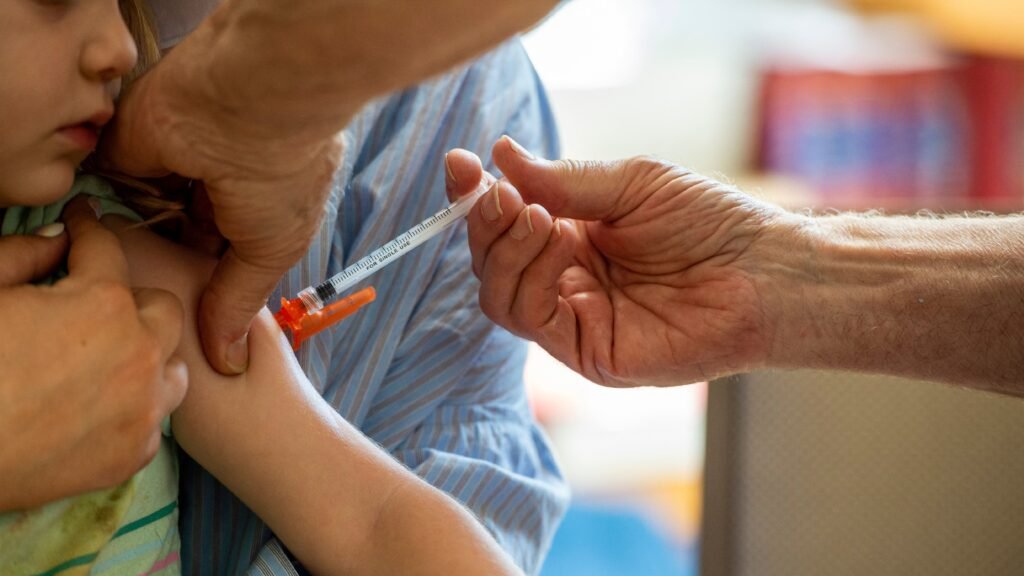Moderna’s Covid-19 Vaccine for Children Receives Full FDA Approval
Moderna’s Covid-19 vaccine for children has recently obtained full approval from the Food and Drug Administration (FDA), marking a significant milestone as the first Covid vaccine for kids in the United States to no longer be administered under emergency use authorization.
However, the FDA approval comes with a specific condition: the vaccine is intended for children with at least one medical condition that puts them at a higher risk of severe illness from Covid, as stated by the FDA.
On Thursday, Moderna announced that the FDA has granted a supplemental Biologics License Application for its vaccine, Spikevax, for use in children aged 6 months to 11 years. Previously, Spikevax received a BLA for individuals aged 12 years and older earlier this year.
In a statement, Moderna CEO Stéphane Bancel emphasized the importance of vaccination in protecting children, especially those with underlying medical conditions, against the severe outcomes of Covid-19. The company anticipates making the updated version of the vaccine available for the 2025-26 respiratory virus season.
Children aged 6 months to 23 months who have not been previously vaccinated against Covid are recommended to receive two doses of the vaccine, spaced one month apart. On the other hand, children who have already been vaccinated or are above 2 years of age should receive a single shot.
The eligibility criteria for the vaccine stem from Health Secretary Robert F. Kennedy Jr.’s decision in May to revise the recommendations for Covid vaccination, excluding healthy children and pregnant individuals from the recommended groups for vaccination. This shift in policy has been met with criticism from experts who highlight the vulnerability of young children to severe Covid infections.
Medical epidemiologist Fiona Havers, who recently departed from the CDC citing disagreements over vaccination policies, pointed out that very young children, particularly those under 2 years of age, are at a heightened risk of hospitalization due to Covid. Data presented to the CDC’s Advisory Committee on Immunization Practices revealed that infants under 6 months have the second-highest rate of Covid-related hospitalization after adults aged 75 and above.
Despite the potential benefits of vaccinating infants and young children against Covid, the FDA’s approval stipulation and Kennedy’s recommendations may pose challenges for parents seeking to protect their children. Havers raised concerns about the limited options available to parents and the reluctance of healthcare providers to recommend off-label use of the vaccine for infants.
In conclusion, while the full FDA approval of Moderna’s Covid-19 vaccine for children represents a crucial step in safeguarding vulnerable populations, the accompanying restrictions may hinder efforts to protect infants from severe illness. The ongoing debate surrounding Covid vaccination policies underscores the need for a balanced approach that prioritizes the well-being of children and aligns with scientific evidence.


